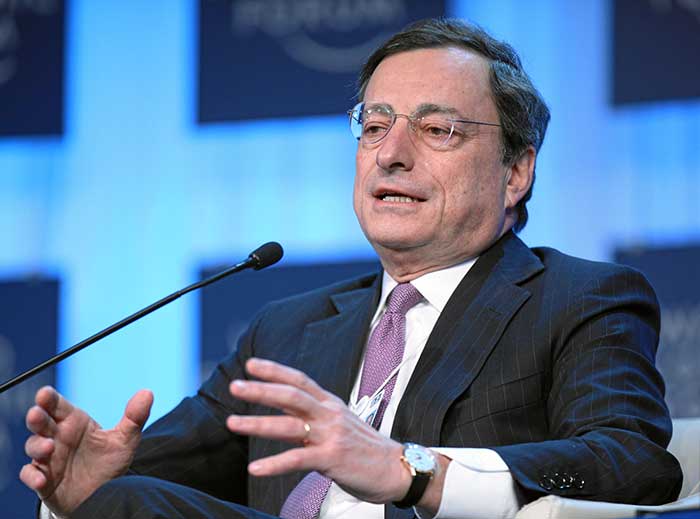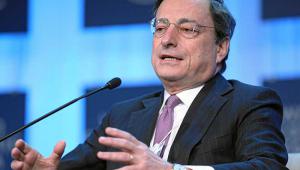web_mario_draghi_-_world_economic_forum_annual_meeting_2012.jpg

Mario Draghi, president of the European Central Bank
While announcing yesterday that the bank’s governing council had decided to keep its extraordinary monetary policy unchanged from its last meeting, Draghi’s language on the risks facing the region softened.
His message to the eurozone governments, however, did not. He urged them to act “more decisively”, substantially stepping up reforms to increase resilience, reduce unemployment and boost productivity.
“Regarding fiscal policies, all countries should intensify efforts towards achieving a more growth-friendly composition of public finances,” he said, adding that fiscal responsibility and adherence to the bloc’s budget rules remained crucial.
While he said the picture was not “uniformly bleak”, he explained that in recent years the pace of reform has “slowed down”, and even countries preparing for key elections should not use that to “justify any absence of action”.
Draghi’s persistent calls for greater support from political leaders have largely fallen on deaf ears, however, so far the EU economic recovery seems to be prevailing without their support.
“In 2013 we were speaking of a recovery that was fragile and uneven, and now it’s solid and broad,” Draghi said, noting that growth has averaged 0.4% “quarter after quarter” since 2013, unemployment and employment figures were improving and the risk of deflation had “virtually disappeared”.
While the bank’s desired inflation conditions, which need to be met before the bank will move away from its extraordinarily low interest rates and programme of quantitative easing, were still not met, analysts said Draghi’s more optimistic tone paved the way for more substantial changes to its policy guidance soon.
Currently, the bank plans to continue its €60bn per month programme of quantitative easing until the end of this year, and keep interest rates at “present or lower levels” until well after that.
The main difference in Draghi’s comments came in his remarks on risks, which he said had “further diminished” and were balanced more towards global factors than they were before.
Draghi avoided questions on how the expected outcome of the French election, where centrist Emmanual Macron is expected to comfortably beat the far-right Marine Le Pen, affected the governors’ decision, but this outcome would certainly line up with the ECB’s view that domestic European risks were receding.
Meanwhile, Draghi said “geo-global sources of risk” had increased, including tensions over North Korea, US tax policy and the consequences of the UK’s departure from the EU.
Amid growing international concern that free trade is under threat, however, Draghi said it may be possible that, at least from the US, that risk “may have somewhat receded”.
Jack Allen, European economist at Capital Economics, said that, while upbeat, the bank was still “a little more dovish than some had anticipated”, considering the strength of the economy.
“Nevertheless, tighter monetary policy will remain a long way off,” he predicted.












